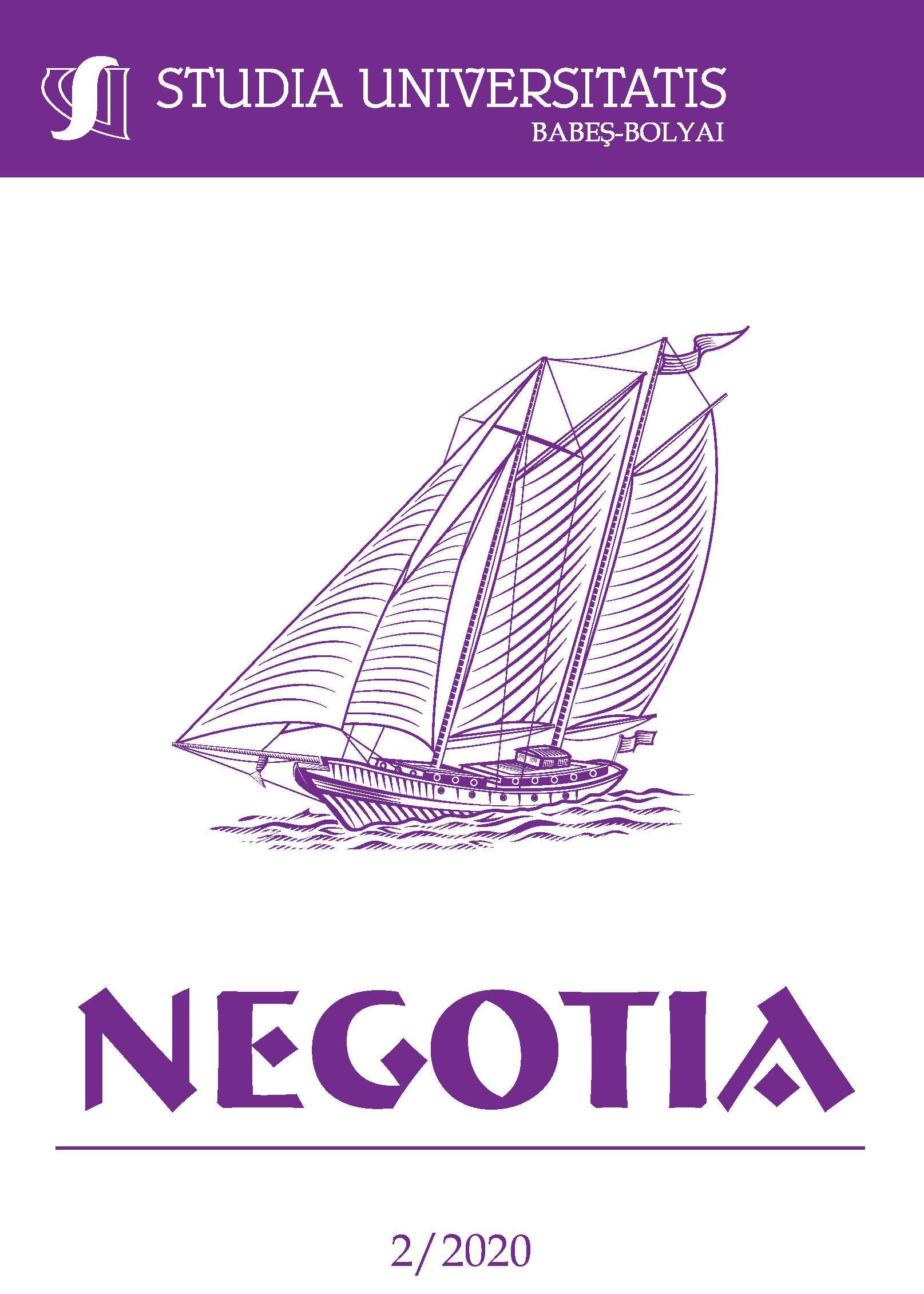REGIONAL PLANNING FOR RODNA AS A TOURIST DESTINATION
DOI:
https://doi.org/10.24193/subbnegotia.2020.2.03Keywords:
Regional planning, Mountain tourism, Rural tourism, Community, Planning stages, Objectives, Collaboration, Strategy, Destination management.Abstract
This paper continues previous researches dedicated to highlighting the importance of planning from a managerial point of view and to discussing the regional dimension of planning, to which it adds up the current topic, that of rural tourism planning – features, particularities, approaches, multi-functionality of land use, collaboration and partnerships, negative planning, green economy, and case-studies. Bearing the theory in mind, a radiography of Rodna commune was briefly made, taking into consideration the following aspects: economy, locals, tourist flows, accommodation, tourists’ profile, food services, accessibility and transportation, travel agents, attractions and heritage, types of tourism, IT & C, sustainability, and traditions. The reason for the description of the commune is to properly understand the context and the particularities of the analyzed destination. Further, the steps of regional planning are revealed, and each of them is separately discussed and analyzed, from both a theoretical and a practical point of view. The outcome is a strategy the community can adopt, with a vision, three directions, and several SMART objectives. This strategy is reflected in a document that aims to engage each stakeholder in the process, as well as to establish in a clear, comprehensive way the common framework. Also, there are several proposals for every community and destination that understands the importance of planning and its implications: collaboration, win-win approach, partnerships, the involvement of the community, sustainability in every dimension, and so on.
JEL Classification: L83, Q01, Z32.
References
Bolog, C. (2018). Regional Planning. Cluj-Napoca.
Bristow, R. J., & Liversidge, J. (1979). A practical approach to business investment decisions. Palgrave Macmillan UK.
Chao-zhi, Z., & Xiao-tao, L. (2017). Tourism planning. The sage international encyclopedia of travel and tourism, 1253-1257.
Choy, D. J. (1991). Tourism planning: The case for ‘market failure’. Tourism Management, 313-330.
Clarenbach, F. A. (1952). The Planning Function in Rural Government. Amercian Journal of Economics & Sociology , 261-279.
Coroș, M.-M. (2015). Managementul cererii și ofertei turistice. București: CH Beck.
Cozma, A.-C. (2020). DMOs in Romania: the Long Way Between Theory, Legislation and Practice. Cluj-Napoca.
Cozma, A.-C., & Coroș, M.-M. (2017). Tourism Development in Rodna Mountains National Park: the Public Administration, a Key Stakeholder. Journal of tourism – studies and research in tourism, 89-94.
Cozma, A.-C., & Coroș, M.-M. (2019). Rodna Mountains National Park and Mountain Tourism – The Case of Romanian Tourists’ Perception. CACTUS Conference 2019.
Drucker, P. F. (1959). Long Range Planning: Challenge to Management Science. Management Science, 233-249.
Fan, X., & Yang, P. (2011). The Survey on the "Negative Planning " mode of Rural Tourism Planning. International Conference on Remote Sensing, Environment and Transportation Engineering, (pp. 906-909). Nanjing.
Gartner, W. C. (2000). Principles of Rural Tourism Development. Economic Studies on Food, Agriculuture, and the Environment, 241-254.
Gusmanov, R., Askarov, A., Lukyanova, M., Kovshov, V., & Stovba, E. (2020). Strategic Planning of Rural Development Based on Foresight Methodologies. Hindawi Scientifica.
Kumar, A. (2019). Rural Tourism. International Journal on Customer Relations, 16-26.
Lalović, K., Sentić, I., & Živojinović, I. (2020). Urban and Regional Planning for Sustainability. Climate Action.
Lew, A. (1989). Authenticity and Sense of Place in the Tourism Development Experience of Older Retail Districts. Journal of Travel Research.
Lord, A., & Tewdwr-Jones, M. (2015). Regional Planning. Elsevier, 129-133.
Majid, M. R., & Zaman, M. (2018). Inclusive Ecotourism and Rural Tourism: Aspirations of National Tourism Plans for Malaysia.
Negrușa, A. L. (2019). Management general. Cluj-Napoca.
Nelson, G. D. (2019). An Appalachian Trail: A Project in Regional Planning. Places Journal.
Păiuș, L. (2013). Monografia comunei Rodna Veche. Bistrița: Editura Charmides.
Robinson, D. W. (2005). Bridging the Tourism Planning Gap: Creating a Regional Rural Tourism Planning Alliance for Communities-in-Transition on Vancouver Island. Canadian Association for Leisure Studies.
Robinson, J., & O’Connor, N. (2013). Ballyhoura—A Case Study of Cohesive Rural Tourism Planning in Ireland. Tourism Planning & Development.
Saxena, G. (2013). Rural Tourism Partnerships and Actor Mobility. International Journal of Tourism Research.
Schmidt, S. (2019). Regional Planning. The Wiley Blackwell Encyclopedia of Urban and Regional Studies.
Sofios, S., & Polyzos, S. (2008). Regional multipliers, Inequalities and Planning in Greece. South Eastern Europe Journal of Economics, 75-100.
Souca, M. L. (2019). Revitalizing Rural Tourism through Creative Tourism: the Role and Importance of the Local Community. MID Journal, 43-50.
Wan, J., Su, Y., Zan, H., Zhao, Y., Zhang, L., Zhang, S., Deng, W. (2020). Land Functions, Rural Space Governance, and Farmers’ Environmental Perceptions: A Case Study from the Huanjiang Karst Mountain Area, China. Land.
Warren, E. K. (1966). Long-Range Planning: The Executive Viewpoint. Prentice-Hall.
Downloads
Published
How to Cite
Issue
Section
License
Copyright (c) 2020 Studia Universitatis Babeș-Bolyai Negotia

This work is licensed under a Creative Commons Attribution-NonCommercial-NoDerivatives 4.0 International License.






